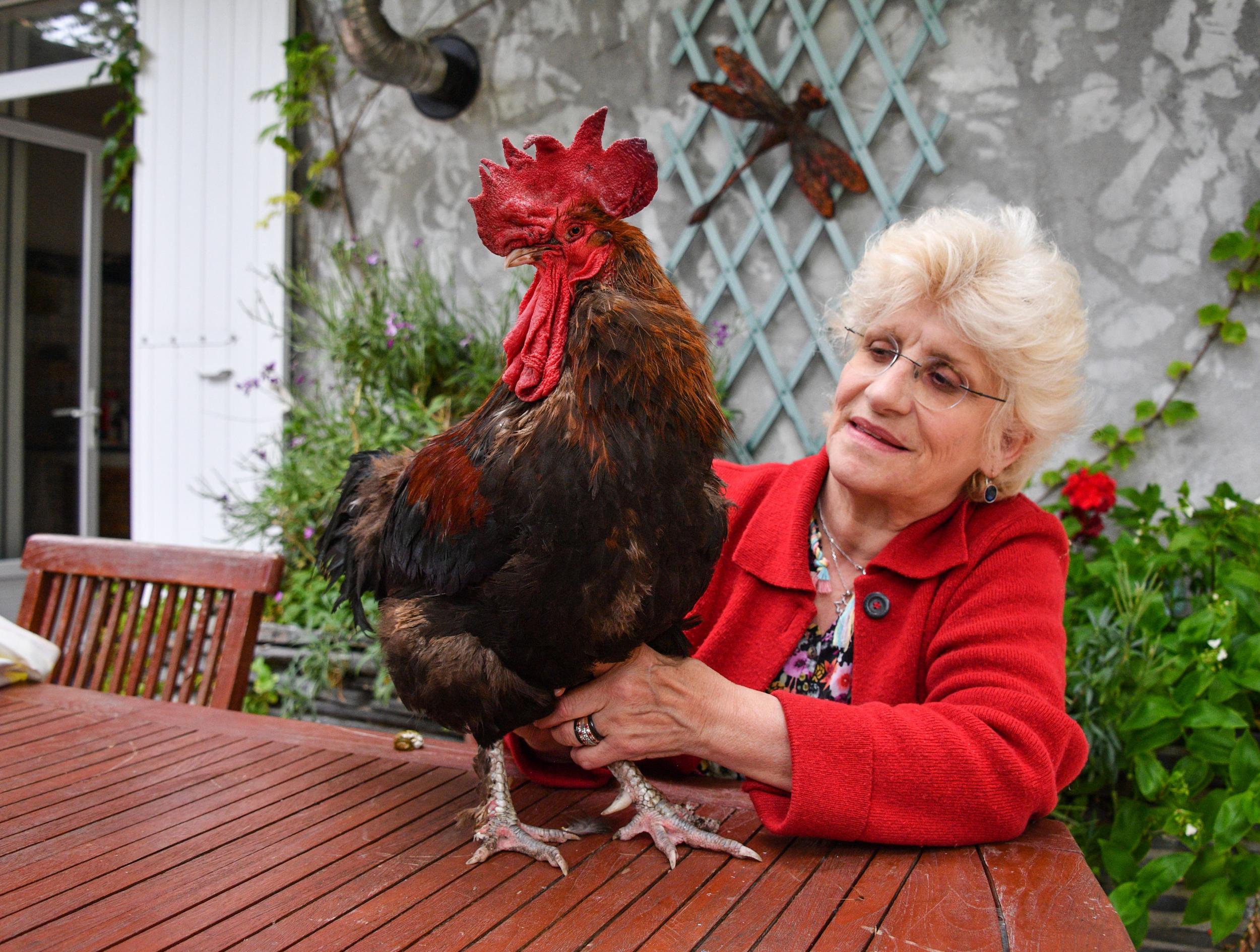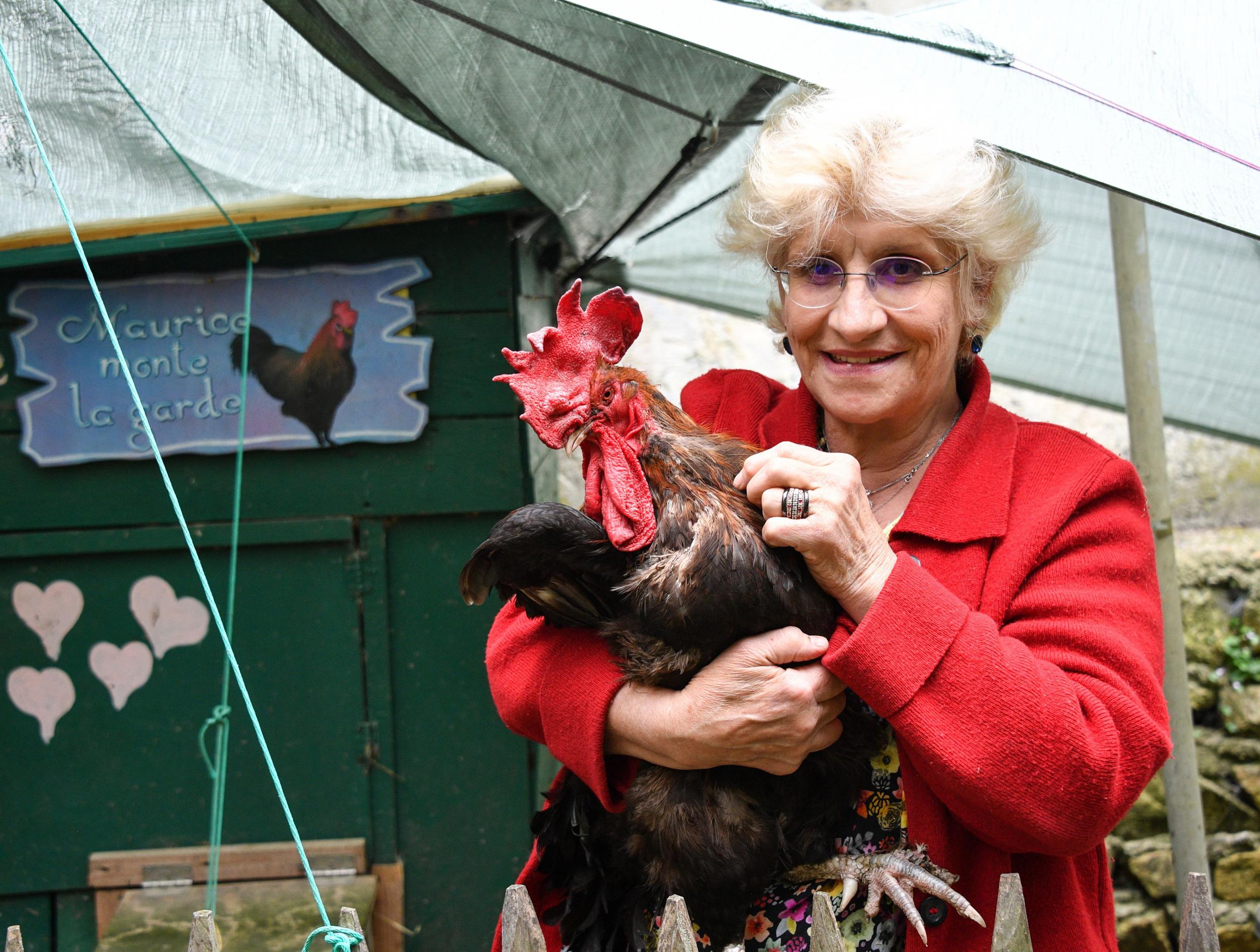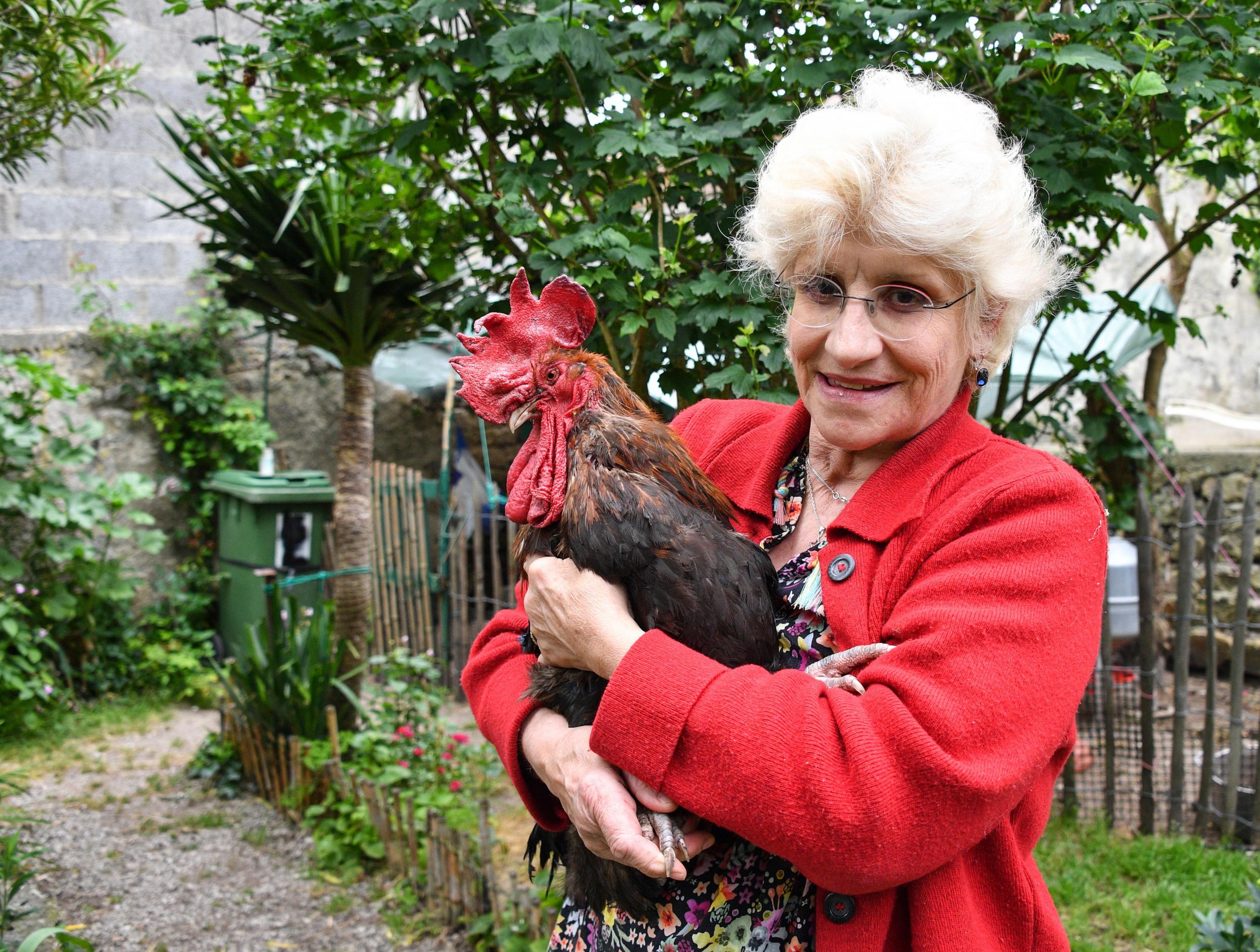How one rooster is splitting a French town with debate
‘A rooster needs to express himself,’ says Corinne Fesseau, owner of the rooster in question.

Your support helps us to tell the story
From reproductive rights to climate change to Big Tech, The Independent is on the ground when the story is developing. Whether it's investigating the financials of Elon Musk's pro-Trump PAC or producing our latest documentary, 'The A Word', which shines a light on the American women fighting for reproductive rights, we know how important it is to parse out the facts from the messaging.
At such a critical moment in US history, we need reporters on the ground. Your donation allows us to keep sending journalists to speak to both sides of the story.
The Independent is trusted by Americans across the entire political spectrum. And unlike many other quality news outlets, we choose not to lock Americans out of our reporting and analysis with paywalls. We believe quality journalism should be available to everyone, paid for by those who can afford it.
Your support makes all the difference.The rooster is annoyed and off his game. He shuffles, clucks and puffs out his russet plumage. But he doesn’t crow. Not in front of all these strangers. “You see, he’s very stressed out,” says his owner, Corinne Fesseau. “I’m stressed, so he’s stressed out. He’s not even singing anymore.” She picks up Maurice the rooster and hugs him. “He’s just a baby,” she says.
Maurice has become the most famous chicken in France, but as always in a country where hidden significance is never far from the surface, he is much more than just a chicken. He has become a symbol of a perennial French conflict – between those for whom France’s countryside is merely a backdrop for pleasant vacations and the people who actually inhabit it.
Maurice and his owner are being sued by a couple of neighbours. They are summer vacationers who, like thousands of others, come for a few weeks a year to Saint-Pierre-d’Oleron, the main town on an island off France’s western coast full of marshes and “simple villages all whitewashed like Arab villages, dazzling and tidy”, as the novelist Pierre Loti wrote in the 1880s.
These neighbours, a retired couple from near the central French city of Limoges, say the rooster makes too much noise and wakes them up. They want a judge to remove him. But for tens of thousands across France who have signed a petition in the rooster’s favour, and for a host of small-town French mayors, Maurice has become a national cause.
The crowing Gallic coq, an eternal symbol of France, must be protected, they say. The rooster has a right to crow, the countryside has a right to its sounds and outsiders have no business dictating their customs to its rural denizens.

The controversy taps into France’s still unbroken connection to its agricultural past, its self-image as a place that exalts farm life and the perceived values of a simpler existence. A parliamentary representative from the rural district of Lozere recently told French news media that he wants rural sounds to be officially classified and protected as “national heritage.”
Fesseau, a retired waitress who now has a torch-singing act, sees things from Maurice’s perspective. “A rooster needs to express himself,” she says.
The mayor of this minuscule island capital, Christophe Sueur, sees a broader threat. “We have French values that are classic, and we have to defend them,” he says. “One of these traditions is to have farm animals. If you come to Oleron, you have to accept what’s here.”
In the summer, the island’s normal population of 22,000 can balloon 20-fold. Recalling that some vacationers had even demanded the silencing of the church bells, the mayor says: “A minority wants to impose their way of life.”
“There are people who refuse our traditions,” he says. He explains that chicken coops were common on the island, a place isolated from “the continent” before a bridge was built a half-century ago. To protect Maurice, the mayor supported a municipal ordinance that proclaimed the need “to preserve the rural character” of Saint-Pierre-d’Oleron. The measure, which passed, is largely symbolic, but it puts Sueur firmly behind Maurice.
“This is more than just a debate about a rooster, it’s a whole debate about the rural way of life, it’s really about defining rurality,” says Thibault Brechkoff, a mayoral candidate who stopped by Fesseau’s modest two-story stone house last week for some electioneering. “The rooster must be defended,” he adds.
This is more than just a debate about a rooster, it’s a whole debate about the rural way of life, it’s really about defining rurality
It could be worse for Maurice, a cantankerous fowl with a magnificent puffed-out coat who struts Fesseau’s backyard with three hens in tow. His date in court has just been put off. There was no immediate risk of expulsion, or less pleasant rooster destinies.

The Limoges couple, Jean-Louis Biron and Joëlle Andrieux, have petitioned a judge to make Fesseau and her husband stop “the nuisances consecutive to the installation of their chicken-coop, and most particularly the song of Maurice the cock”. They insist that the setting is urban, and so Maurice has no right to crow.
Urban seems a stretch. Fesseau’s small house with bright blue shutters sits at the edge of this quiet town of 6,700, with its high-steepled stone church and narrow shopping street. The marshes quickly creep up on it; the writer Loti asked to be buried in Saint-Pierre-d’Oleron, “in the sweet peace of the countryside,” as he wrote.
Biron and Andrieux hired an official court bailiff to report on the rooster, at a cost of hundreds of dollars. The bailiff didn’t hear the fowl the first day, according to court documents. It was only on the second and third day “upon entering the residence at 6.30am and 7am” that he “took note of the song of the rooster”.
A mediator suggested sending Maurice away while Biron and Andrieux were using their vacation home. “I won’t be separated from my rooster!” Fesseau says. “These people come here and they say, ‘We’re going to make ourselves at home. But they can’t give us orders.”
“Look, they’re not against the rooster,” says the plaintiff’s lawyer, Vincent Huberdeau. “They’ve never asked for the death of this animal.”
I won’t be separated from my rooster!
“This is about noise,” he says.
The lawyer says his clients built their house 15 years ago and had enjoyed peaceful vacations until Fesseau installed her chicken coop in 2017. “They’ve been presented as people hostile to nature,” Huberdeau says. “But it’s not that at all. They have nothing against the rural world.”
On a recent early morning, Maurice poked his head through the tiny trapdoor of his green wooden coop, painted with words of affection (choupinette and tartiflette). He clucked quietly. It was still dark. At precisely 6am, with the sun just emerging, he stiffened, raised his head, shook his wattles, opened his beak and let out a low, hoarse crow. (“Discreet” was how Maurice’s lawyer characterised it in a court pleading.)
Fesseau’s husband, Jacky, a retired fisherman, slept right through the performance. “Before, he was happy, everything was going so well,” Fesseau says. “But now, with all this uproar and stress...” Fesseau’s voice trailed off sadly. The rooster’s lawyer, in official pleadings, says Maurice “himself has perceived this disquiet, as for the past several months he has only rarely sung”.
A random sampling of the other neighbours uncovered only staunch defenders of Maurice. “Why must a rooster be arrested?” asks Katherine Karom, a neighbour who lives in the same mini-development as the complaining couple. “It’s as if you were to say, stop the church bells from ringing,” she says. “You can’t stop people from having animals. This is the countryside here.”
Renaud Morandeau, a fisherman who lives next door, summed things up bluntly. “I’ve never even heard it,” he says. “I don’t even understand what all the fuss is about.”
“And even if I had heard,” he adds, “what the heck – it’s a rooster.”
© New York Times
Join our commenting forum
Join thought-provoking conversations, follow other Independent readers and see their replies
Comments